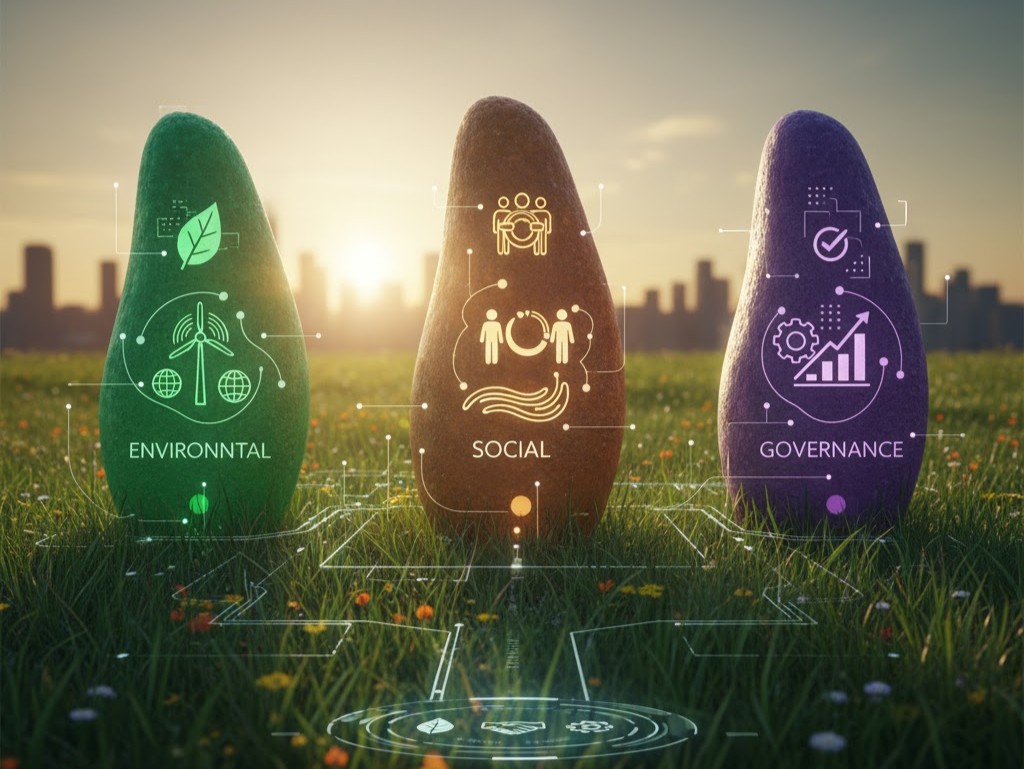by jiawen
Share
Share
During the COP26 conference in Glasgow, the use of coal and fossil fuels have received growing pressure as it is one of the key contributors of global warming. Nearly 30% of global emissions come from the burning of coal. This will push the world further away from its ultimate goal of net zero emissions. Therefore, it is a matter of urgency to phase out the use of coal and stop financing for coal projects. Another key discussion point during the COP26 climate summit is to end deforestation by 2030. According to the Food and Agriculture Organisation of United Nations, we have lost nearly 420 million hectares of forest since 1990 while making room for other land uses. To slow down the forest lost, countries that have signed the declaration need to eliminate deforestation from its supply chains.
Singapore’s Initiatives
As the financial regulator of Singapore, Monetary Authority of Singapore (MAS) is demonstrating its commitment towards promoting a greener economy. As part of its sustainability efforts, MAS has formed a Sustainability Group with Dr Darian McBain as the Sustainability Officer to help building a green finance ecosystem. Further to that, MAS has announced in November this year about their plan of establishing four digital platforms under Project Greenprint to facilitate the transparency and consistency of ESG reporting. On the other hand, as stated in a recent CNA news article, Singapore has become member of the Powering Past Coal Alliance (PPCA) at COP26. The aim of joining the PPCA is to accelerate the transition from coal to clean energy sources by 2050.
Some other ASEAN countries
- To keep the global temperature rise under control, Malaysia is seeking to reduce methane emission that mainly come from the oil and gas industries. As one of the participants of the Global Methane Pledge, Malaysia agrees to take necessary actions to cut down the methane emissions across all sectors by at least 30% by 2030. Such initiative aims to help decrease global warming by 0.2 degree Celsius by the next 30 years.
- Southeast Asia region is playing an important part in tackling climate change as it accounts for 15% of the world’s tropical forests. Among all the other neighbouring countries, Vietnam and Indonesia are the first two ASEAN countries to sign a pledge to halt deforestation by 2030. Their ultimate goal is to restore stability of climate and local weather.
Summary
As mentioned by Mr Dominguez, the lead of the Philippines’ delegation during his speech at COP26, this climate summit needs to become the “catalyst for concrete action plans” instead of just a platform of discussion for countries’ representatives. Therefore, it is critical for countries to take urgent actions and initiate the change today. Taking into consideration the financial needs and limited capabilities of developing countries, developed countries must go hand-in-hand with these developing countries and provide climate finance to them while moving towards a low carbon future. When it comes to climate change, everyone has the responsibility to rectify the problems and make positive contributions to the environment. Hence, collective efforts from various parties including government, private enterprises and financial institutions are necessary to ensure their ESG practices are aligned to the COP26 goals. Discover why your business should adopt ESG initiatives.
How We Can Help
While moving towards a more sustainable economy, Alder helps integrate the ESG framework into your business. Our services include:
- Assisting to set up ESG frameworks
- Providing support on ESG reporting
- Providing ongoing ESG advice and support
- Facilitating effective communication of the company’s ESG approach with internal and external stakeholders
- Reviewing and rating the existing governance framework
Reference Materials
Board, J. (2021). ‘COP26: World leaders promise to end deforestation by 2030, but most Southeast Asian countries yet to sign on’, CNA, 3 November. Available at: https://www.channelnewsasia.com/sustainability/cop26-glasgow-deforestation-declaration-southeast-asia-2286856
Chow, D. (2021). ‘Time is running out’ at U.N. climate conference, officials warn’, NBC News, 12 November. Available at: https://www.nbcnews.com/science/environment/cop26-un-officials-warn-time-running-reach-deals-rcna5263
Food and Agriculture Organisation of the United Nations (2020). ‘The State of the World’s Forests 2020’. Available at: https://www.fao.org/state-of-forests/en/
Leo, L. (2021). ‘COP26: Singapore commits to phasing out unabated coal power by 2050’, CNA, 4 November. Available at: https://www.channelnewsasia.com/singapore/cop26-singapore-commits-phasing-out-unabated-coal-power-2050-2291546
Monetary Authority of Singapore (2021). ‘MAS sets up sustainability group, appoints Chief Sustainability Officer’. Available at: https://www.mas.gov.sg/news/media-releases/2021/mas-sets-up-sustainability-group-appoints-chief-sustainability-officer
Ranada, P. (2021). ‘What the Philippine delegation did at COP26 climate summit’, Rappler, 13 November. Available at: https://www.rappler.com/newsbreak/in-depth/what-philippine-delegation-did-cop26-climate-summit/
Wilkinson, D. (2021). ‘COP26 Is Over – What’s Next for Forests, Coal, and Fossil Fuel Finance?’, NBC News, 16 November. Available at: https://www.nbcnews.com/science/environment/cop26-un-officials-warn-time-running-reach-deals-rcna5263
The majority of today’s investors no longer focus solely on potential returns. Many now look beyond projections to understand how companies achieve their goals responsibly and sustainably. As a result, Environmental, Social and Governance (ESG) factors have become a key consideration in modern investment decisions.
With growing investor demand for transparency, more companies are publishing sustainability reports — yet many still face challenges with consistent ESG data and reporting standards. Fintech is stepping in to close these gaps. Through initiatives like MAS’s Project Greenprint, Singapore is leading the way in digital ESG reporting with platforms such as ESGenome and ESGpedia. As global frameworks like GRI and TCFD gain traction, companies are encouraged to view sustainability reporting not as a compliance task, but as a vital step toward achieving long-term resilience and net-zero goals.
Singapore is stepping up its climate action with a higher carbon tax and stronger green initiatives to drive decarbonisation. Businesses are now encouraged to manage their carbon footprint, explore carbon credits, and strengthen their ESG strategies. By taking proactive steps toward sustainability, companies can stay competitive while supporting Singapore’s transition to a low-carbon future.
Investors today increasingly prioritise companies with strong ESG practices. With growing awareness across all generations in Singapore, sustainability has become a key factor in investment decisions. Businesses that embed ESG into their strategies can enhance long-term value while contributing positively to society and the environment.






